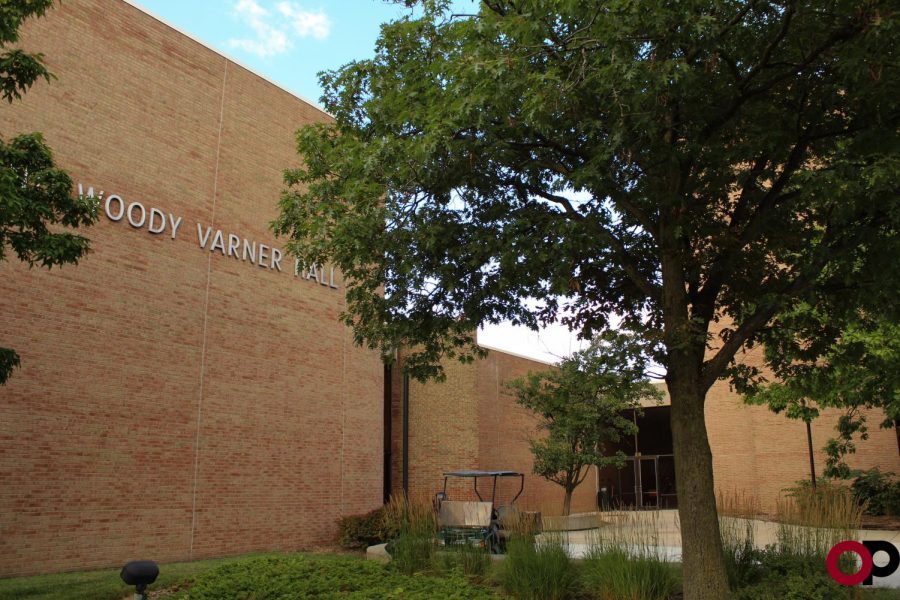SMTD looks to creative solutions to create quality classes in unprecedented times
SMTD pivots curriculum to a hybrid setting, with some online classes and some very small in-person classes in order to ensure student safety.
With the pandemic forcing Oakland University to move to a mostly online format, the School of Music, Theatre and Dance (SMTD) is looking for solutions to continue making music.
Plans for the upcoming hybrid semester have changed with the updating COVID-19 restrictions, but the challenges for planning a comprehensive curriculum for the performing arts differ from those for math or business classes. This has forced SMTD to become creative with the ways they are offering classes.
“Another thing we’ve learned this summer is that the more people that get together and play an instrument are seeing the more dangerous it is as far as the virus,” SMTD Director Amy Tully said. “So all of our voice and wind ensembles will be virtual — so we will not have any bands that are playing in person, unless they’re doing something outside in small groups.”
While the weather holds up for September and October, SMTD will be hosting small classes and performances around Varner Hall so students will have the opportunity to practice and perform together, rather than alone over the computer.
When students are attending a class or lesson virtually, they will be provided with equipment they otherwise would not have access to, like keyboards or microphones. Unlike when the university shut down in the spring, SMTD has had all summer to gather their bearings to support their students in the hybrid semester.
“We weren’t prepared for [virtual learning] in March, when it came technology-wise, but we’re much more prepared for that now,” Tully said. “And that includes having webcams and every classroom. That includes you know having appropriate microphones for any virtual teaching, where we want to hear the best quality sound of a voice or an instrument.”
Although students will not be able to have their traditional class and real-world observation experiences, Tully promises that the school has been working to ensure their time spent this semester is just as valuable and worthwhile.
“I think we will have comparable experiences where our faculty still have high expectations for the students and learning outcomes,” she said. “But the way we’re going to achieve that is different, and I think the way we’ve adapted [is] the best way.”
Kevin Cornwell II, a third-year vocal student, expressed his concerns about the upcoming semester due to the ease COVID-19 can spread, especially from an asymptomatic carrier. According to him and Tully, some research has shown that singing and playing an instrument can spread aerosols further than normal talking does. This is a cause for some concern with the in-person classes the school plans to hold this semester, despite them being socially distanced in a large space.
“They want to make sure that they give the students the best quality of education,” Cornwell said. “I’m not going to lie, to a degree last semester … it was kind of a nightmare in the beginning because it was so much that we never really gone through before. And it wasn’t easy I’ll say that, but I think this second go around with a lot of the professors having already their first time doing this last semester, I think will have an easier time of trying to get you know the best education possible to put us in the place to succeed.”







